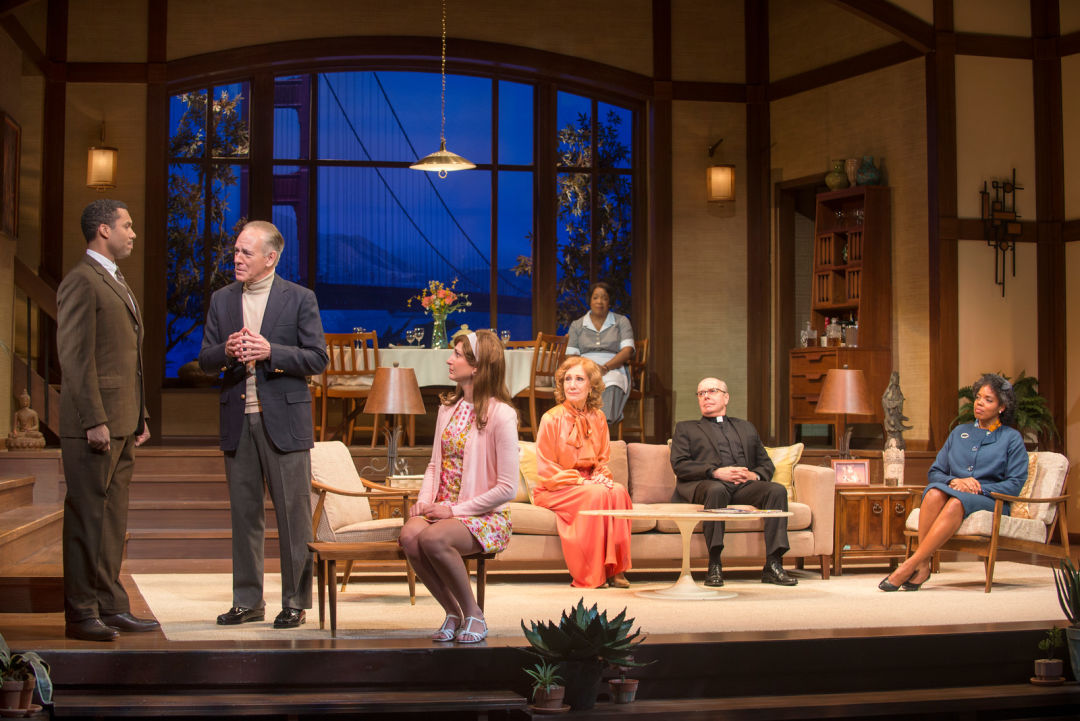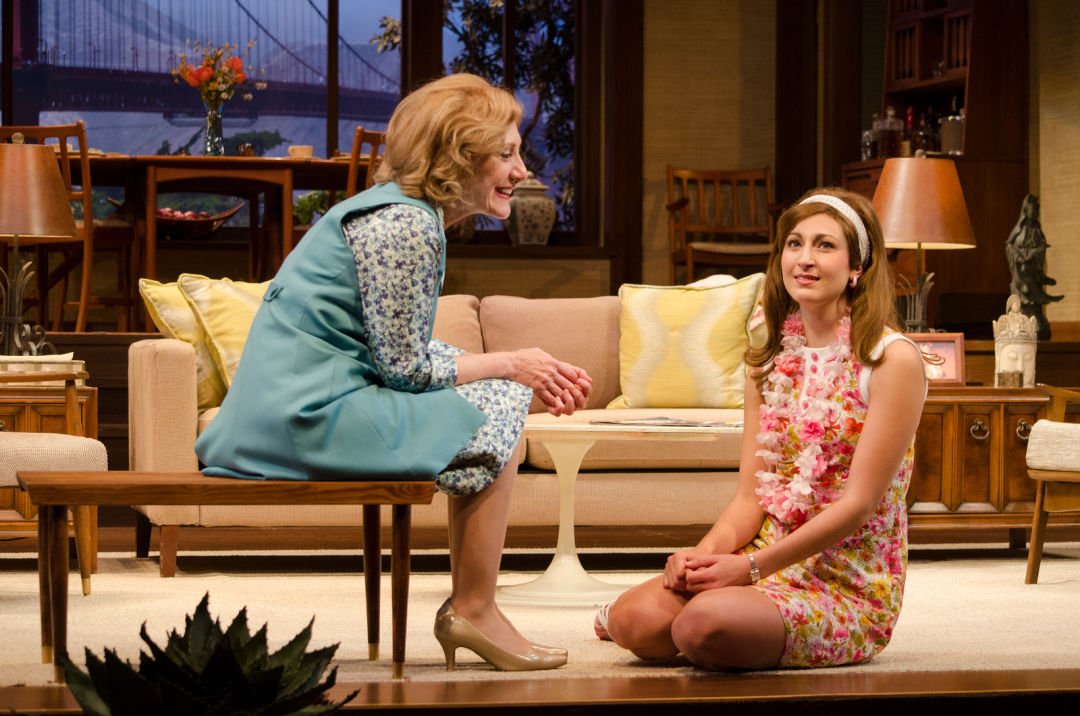Asolo Rep's Guess Who's Coming to Dinner

The cast of Asolo Rep's Guess Who's Coming to Dinner. Photo by John Revisky
When Asolo Rep first announced it would be presenting Guess Who’s Coming to Dinner this season, I wondered a little how the company would manage to make relevant to today this Todd Kreidler stage adaptation of the 1967 film.
Certainly, when I’ve glimpsed that movie again on television after all the years since it first came out, it seemed rather quaint. Not so much, perhaps, in its setup: Young white woman brings home African-American boyfriend to meet her parents and reactions of surprise, concern and even anger ensue.
That could still happen today, no doubt, and interracial marriage, while more common now than in 1967 (when it remained illegal in some states) can still stir a lot of emotions.
What feels dated in this recent play, frankly, is some of the speechifying that takes place around the arrival of Joanna (Ally Farzetta) at the San Francisco home of her affluent parents, gallery owner Christina (Peggy Roeder) and newspaper publisher Matt (Mark Jacoby).
Everyone here weighs in on her announcement that she’s fallen in love with a doctor (A.K. Murtadha) who would surely be most parents’ dream if only he were the same color as Joanna: the family’s longtime black maid (Jacqueline Williams), who’s sassy in the traditional maid-in-a-play sense but also suspicious of the newcomer; family friend Monsignor Ryan (William Dick), who’s more open-minded than you might think; and gallery assistant Hilary (Denise Cormier), who reveals her closet racism, thereby enabling Christina to make an applause-getting decision and speech.

Peggy Roeder and Ally Farzetta. Photo by John Revisky
But that’s the thing about Guess Who’s Coming to Dinner. Despite good work by the ensemble cast (I especially like Roeder, who combines adept comic timing with warmth, and Dick, whose interjections are always welcome), and intelligent direction by Frank Galati, the play too often feels like a vehicle for self congratulation more than any real exploration of what our responses might be in the same situation. I felt that even back in 1967, when the star power of Katharine Hepburn, Sidney Poitier and an ailing Spencer Tracy (it was his last film) helped to engage audiences in a way that also related to our history of seeing earlier films with the actors.
Of course there are good moments in the play when humor wins out, as at the beginning of Act II when Dr. John’s parents (Ernest Perry and Tyla Abercrumbie) turn up and prolonged glares and awkward conversation follow; and more powerful dramatic ones, as in a climactic scene between father and son about changing times and expectations for black men in America.
But Guess Who’s Coming to Dinner didn’t cause me to make any new discoveries about racism, the American character or whatever subtle prejudices I might find in my own heart and mind. I’ve been there, done that, before. For some, though, the talents of the cast and the overall positive message of the play may be enough.
Guess Who’s Coming to Dinner continues through April 17; for tickets call 351-8000 or go to asolorep.org.



